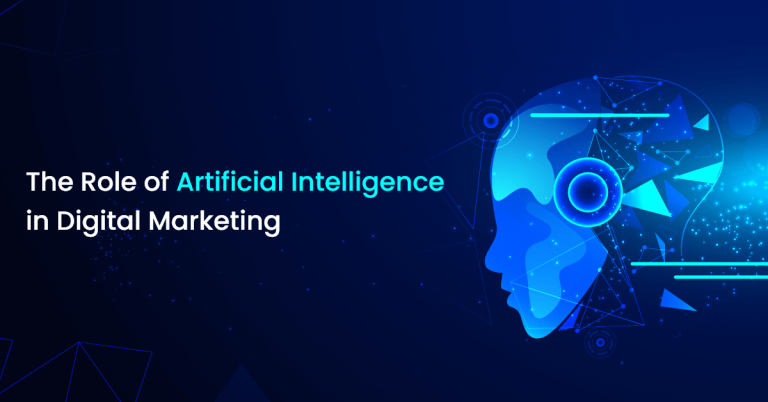In recent years, artificial intelligence (AI) has been transforming the digital marketing landscape. AI has the power to collect and analyze vast amounts of data in real-time, making it an essential tool for marketers. This article explores the role of AI in digital marketing and how it is changing the way businesses engage with their target audience.
What is Artificial Intelligence?
Artificial Intelligence refers to the ability of machines to simulate human intelligence and perform tasks that typically require human-like abilities, such as learning, problem-solving, and decision-making. AI relies on deep learning algorithms that enable machines to improve their performance over time by learning from data inputs.
How is AI Impacting Digital Marketing?
AI is revolutionizing the digital marketing landscape by enabling marketers to collect, analyze, and act on data in real-time. The following are a few ways AI is affecting digital marketing:
1. Personalization
AI-powered tools can analyze customer data to personalize content and messages to individual users. By understanding customers’ preferences and behaviors, AI can help marketers deliver tailored experiences that resonate with their target audience. Personalization is becoming increasingly important in digital marketing, with studies showing that personalized emails can increase open rates by 29% and conversion rates by 41%.
2. Predictive Analytics
AI can analyze large amounts of data to predict customer behavior, such as which products they are likely to buy and when they are likely to make a purchase. By leveraging predictive analytics, marketers can make data-driven decisions that improve their marketing campaigns’ effectiveness. For example, an online retailer can use AI to analyze customer data and predict which products are likely to sell out during a particular season, enabling them to stock up on those products and maximize their sales.
3. Chatbots
Chatbots are virtual assistants driven by AI that can interact with clients in real-time, responding to their inquiries and making recommendations that are unique to each individual. Chatbots can help businesses save time and resources by automating customer service tasks and improving the customer experience. According to a study by Juniper Research, chatbots are expected to save businesses over $8 billion per year by 2022.
4. Content Creation
AI-powered tools can create content, such as blog posts and social media posts, using natural language processing algorithms. These tools can help marketers create high-quality content quickly and efficiently, freeing up time for other marketing tasks. For example, an AI-powered tool can analyze a business’s website and create a blog post based on the most frequently searched keywords related to their industry.
5. Lead Generation
AI can analyze customer data to identify potential leads and target them with personalized marketing messages. By leveraging AI for lead generation, marketers can improve their conversion rates and generate more revenue. For example, an AI-powered tool can analyze a business’s website traffic and identify which visitors are most likely to make a purchase, enabling the business to target those visitors with personalized marketing messages.
Challenges of AI in Digital Marketing
While AI has the potential to transform the digital marketing landscape, it also poses some challenges. Here are some of the challenges of AI in digital marketing:
1. Privacy Concerns
AI relies on customer data to make predictions and personalize content, which raises privacy concerns. Businesses must be transparent about how they collect and use customer data to ensure they comply with privacy regulations.
2. Bias
AI relies on data inputs, which can sometimes be biased. To avoid biased predictions, businesses must ensure they are collecting diverse data inputs that represent their target audience. For example, if a business only collects customer data from a particular geographic region, their AI predictions may be biased towards that region and not reflect the broader market.
3. Cost
The cost of AI-powered products can be high, especially for small enterprises with limited funding. Businesses must weigh the cost of AI against the potential benefits to determine if it is a worthwhile investment.
Conclusion
AI is transforming the digital marketing landscape by enabling businesses to collect, analyze, and act on data in real-time. From personalization to lead generation, AI is changing the way businesses engage with their target audience. However, businesses must be aware of the challenges posed by AI, such as privacy concerns, bias, and cost, and take steps to mitigate these challenges.
Are you looking to take your digital marketing efforts to the next level with the help of artificial intelligence? Websoft Techno is here to help! Our team of experts specializes in AI-powered digital marketing solutions that can help you reach your target audience more effectively and efficiently than ever before.
Contact us today to learn more about how we can help you leverage AI in your digital marketing strategy. You can reach us by phone at +91 9922442272 or +91 98509 44480 or email us at connect@websofttechno.com. You can also visit our website at www.websofttechno.com to learn more about our services.

